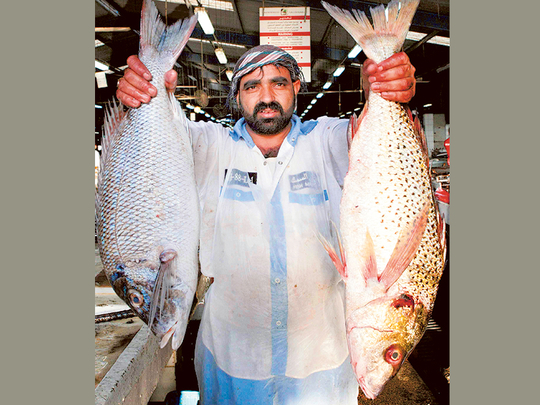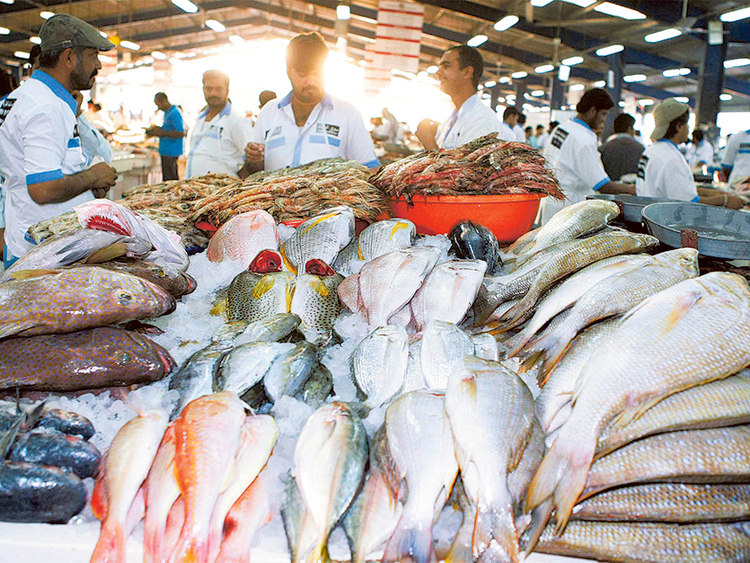
Dubai: Low fish prices are whetting the appetite of shoppers at Deira fish market in Dubai.
The going prices are half that of summer rates as supply is healthy during the cooler winter months.
Traders said fish are closer to the surface during cool weather and easier to catch. In the summer, they stay deeper to avoid the hotter waters near the surface.
As more fish land at the market, their availability ensure prices stay low. However, low prices don’t mean the sellers are making less money. With more customers arriving to snap up deals, the sellers end up making a neat pile.
It is impossible to walk around the market and not be solicited by sellers.
Their enthusiasm never drops, no matter how often you walk past without a purchase.
“Madam, please come and see,” a seller repeatedly asks a Western tourist and her friend. When she didn’t show any interest, he requested them to “come take picture” at least.
You can hear the cacophony of fish names being touted by salesman in Arabic and Hindi without end. “Sirjin, matti, sheri!” The list goes on. Many sellers don’t know what the fish are called in English.
Customers too are energetically haggling for prices, which are already low.
However, almost every stall has nearly identical prices, leaving little margin to manoeuvre.
The grouper or hamour fish, which is perhaps the most popular variety in the UAE, goes for around Dh20 per kilogram, compared with the Dh50/kg summer rate. Sheri, another local favourite is also around the half mark at Dh20.
Traders are quick to point out there are many varieties of the same kind of fish available at different prices. Their weight and size also affects the price. In fact, fish sold in the early morning — that have been caught by Dubai fishermen and are still alive when sold — cost up to three or four times more.
These catch are know as “garghoora” in local trade lingo.
Other varieties arrive from Oman sea, or from Ras Al Khaimah, or even from India in ice boxes, and cost less than local and fresher fish.
Also, according to some customers, prices at the Deira market are generally lower than those in Sharjah or Ajman. One shopper from India said it could be because there is more supply and competition at the Deira market.
The winds also affect prices, as most fishing boats tend to stay clear of rough seas swept up on windy days. That means less fish landing at the market, and hence higher prices.
“It can get really rough in the high open seas, more than near the coast. You won’t find big fish near the coast anyway. So whatever comes to the market that day is limited and more expensive,” said Mohammad Usman, a fish seller from Pakistan.
Besides deals, the fish market is also a place known for its cultural value. It attracts tourists who want to see a different side of Dubai, with the fishermen hawking their wares in different languages, the different background of shoppers, and the photo opportunities it presents.
Dubai Municipality is building a new fish market in Deira, which is 60 per cent complete and will be ready in the last quarter of 2015.
The market, being built at a cost of Dh268.8 million will also become a tourist attraction because of its traditional Arabian design and the cultural aspects associated with such a place, Hussain Lootah, director-general of Dubai Municipality, said during a recent visit to the site.











